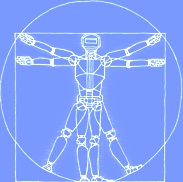
Probabilistic Models of Human Sensorimotor Control
Daniel M. Wolpert, University of CambridgeThe effortless ease with which humans move masks the true complexity of the control processes involved. This is evident when we try to build machines to perform human control tasks. While computers can now beat grandmasters at chess, no computer can yet control a robot to manipulate a chess piece with the dexterity of a six-year-old child. A major factor that makes control hard is the uncertainty inherent in the world and in our own sensory and motor systems. Sensory and motor uncertainty form fundamental constraints on human sensorimotor control. In my talk I will describe three areas of our research which address how the motor system deals with uncertainty. Together these studies provide a probabilistic framework for sensorimotor control.
Biography
Daniel Wolpert read medical sciences at Cambridge and clinical medicine at Oxford. After working as a medical doctor for a year he completed a PhD in the Physiology Department at Oxford. He then worked as a postdoctoral fellow at MIT, before moving to the Institute of Neurology, UCL. In 2005 he took up the post of Professor of Engineering for the Life Sciences at the University of Cambridge and is a fellow of Trinity College. His research interests are computational and experimental approaches to human sensorimotor control
See also www.wolpertlab.com
